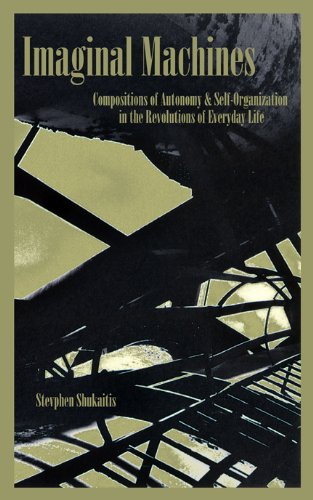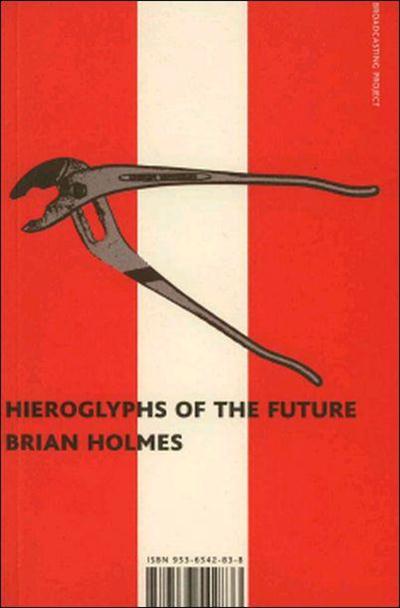Alain Badiou: Deleuze: The Clamor of Being (1997–)
Filed under book | Tags: · immanence, ontology, phenomenology, philosophy, simulation, singularity, time, truth

“A major new voice from France offers a provocative reevaluation of Deleuze’s philosophy.
The works of Gilles Deleuze–on cinema, literature, painting, and philosophy–have made him one of the most widely read thinkers of his generation. This compact critical volume is not only a powerful reappraisal of Deleuze’s thought, but also the first major work by Alain Badiou available in English. Badiou compellingly redefines “Deleuzian,” throwing down the gauntlet in the battle over the very meaning of Deleuze’s legacy.
For those who view Deleuze as the apostle of desire, flux, and multiplicity, Badiou’s book is a deliberate provocation. Through a deep philosophical engagement with his writings, Badiou contends that Deleuze is not the Dionysian thinker of becoming he took himself to be; on the contrary, he is an ascetic philosopher of Being and Oneness. Deleuze’s self-declared anti-Platonism fails–and that, in Badiou’s view, may ultimately be to his credit. “Perhaps it is not Platonism that has to be overturned,” Badiou writes, “but the anti-Platonism taken as evident throughout this entire century.”
This volume draws on a five-year correspondence undertaken by Badiou and Deleuze near the end of Deleuze’s life, when the two put aside long-standing political and philosophical differences to exchange ideas about similar problems in their work. Badiou’s incomparably attentive readings of key Deleuzian concepts radically revise reigning interpretations, offering new insights to even the veteran Deleuze reader and serving as an entrée to the controversial notion of a “restoration” of Plato advocated by Badiou—in his own right one of the most original figures in postwar French philosophy.
The result is a critical tour de force that repositions Deleuze, one of the most important thinkers of our time, and introduces Badiou to English-speaking readers.”
First published as Deleuze: la clameur de l’être, Hachette, Paris, 1997.
Publisher University of Minnesota Press, 2000
Theory Out of Bounds series, 16
ISBN 0816631409, 9780816631407
143 pages
PDF (updated on 2020-7-5)
Comment (0)Stevphen Shukaitis: Imaginal Machines: Autonomy & Self-Organization in the Revolutions of Everyday Life (2009)
Filed under book | Tags: · avant-garde, everyday, left, life, machine, philosophy, politics, revolution, social movements

“All power to the imagination? Over the past forty years to invoke the imagination as a basis for radical politics has become a cliché: a rhetorical utilization of ideas already in circulation, invoking the mythic unfolding of this self-institutionalizing process. But what exactly is radical imagination? Drawing from autonomist politics, class composition analysis, and avant-garde arts, Imaginal Machines explores the emergence, functioning, and constant breakdown of the embodied forms of radical imagination.
What does it mean to invoke the power of the imagination when it seems that the imagination has already seized power through the power of the spectacle? Does any subversive potentiality remain? Perhaps it is only honest to think in terms of a temporally-bounded subversive power. It might be that imaginal machines only work by breaking down. That is, their functioning is only possible, paradoxically, by their malfunctioning. By reopening the question of recuperation, the inevitable drive to integrate the power of social insurgency back into the working of capital and the state, we create possibilities for a politics continually reconstituted against and through the dynamics of recuperation: to keep open an antagonism without closure.”
Publisher Minor Compositions, London/NYC/Port Watson, 2009
ISBN 1570272085, 9781570272080
255 pages
PDF (updated on 2016-2-21)
EPUB (added on 2016-2-21)
ARG (added on 2016-2-21)
Scribd
Brian Holmes: Hieroglyphs of the Future: Art & Politics in a Networked Era (2003)
Filed under book | Tags: · activism, art, capitalism, critique, cybernetics, mapping, media activism, network culture, politics, social movements

“Networks redefine urban and social borders and can be interpreted in many ways according to the chosen perspective, a limited territory or the entire globe, revealing at the same time the potential and the limits of their actions. This collection of essays, which features a solid political approach intertwined with art, pushes the limits of the critique of the mobility as defined by human beings and the reconfiguration of urban space, analyzing the powers and desired contained in it. A hyperlinking of transnational forces of opposition are invited to play a strategic game coordinating their efforts for imagining future alternative and sustainable realities, through a media struggle which uses the same propaganda tools of capitalism. The collaboration with the art collective Bureau D’Etudes and the resulting maps of power produced by them are nodal, but the core of these essays are the instruments of analysis offered, which elaborate new expressions to effectively decode our contemporary world.”
Publisher Arkzin Communications / What, How and for Whom, Paris/Zagreb, 2003
Broadcasting series, 3
ISBN 9536542838, 9789536542833
294 pages
PDF (updated on 2015-4-28)
Comment (0)
